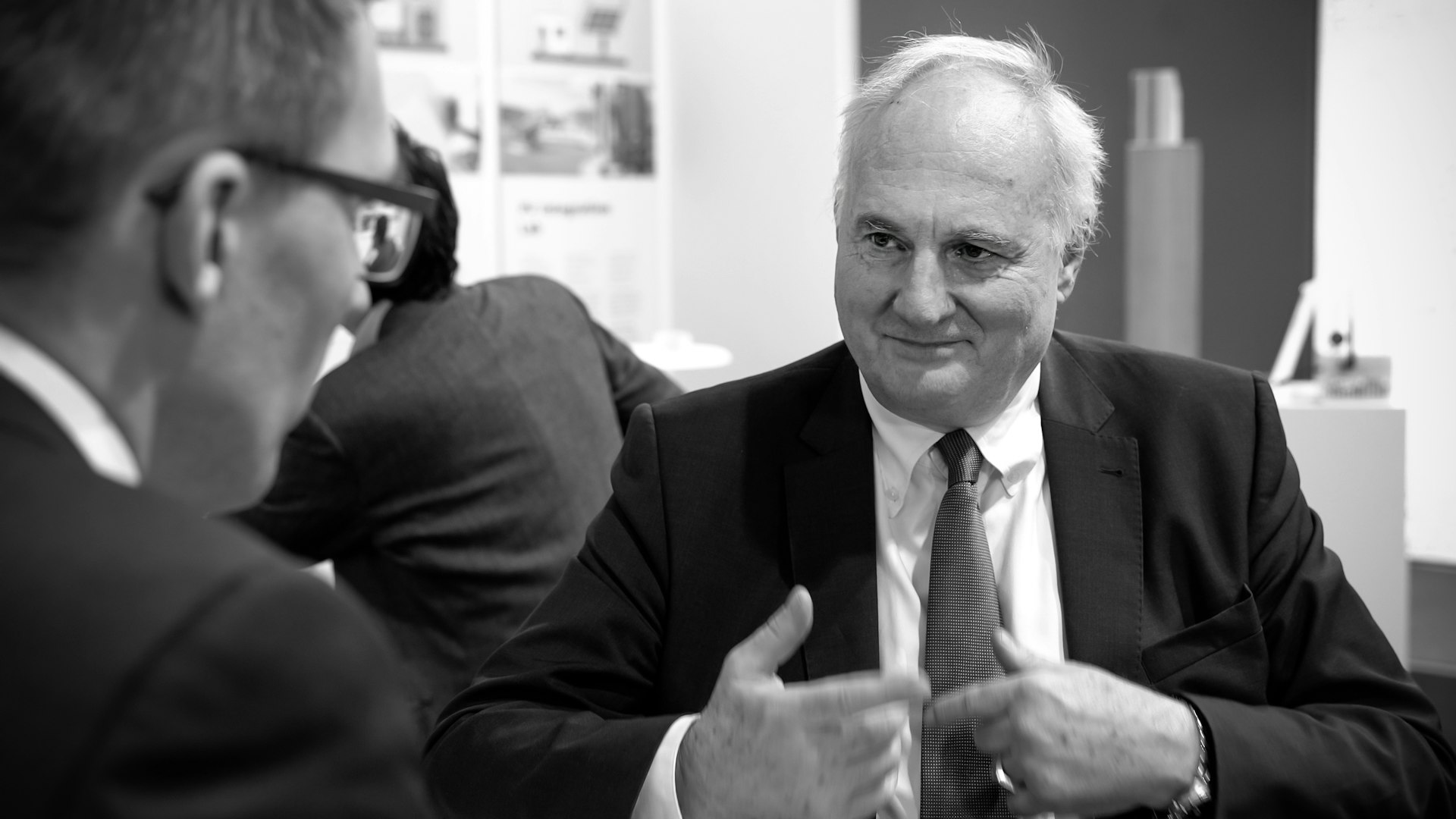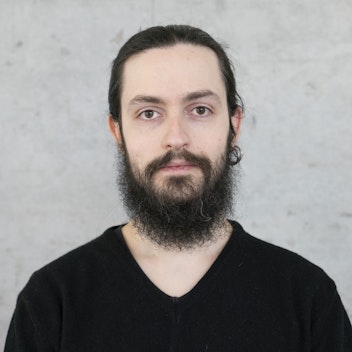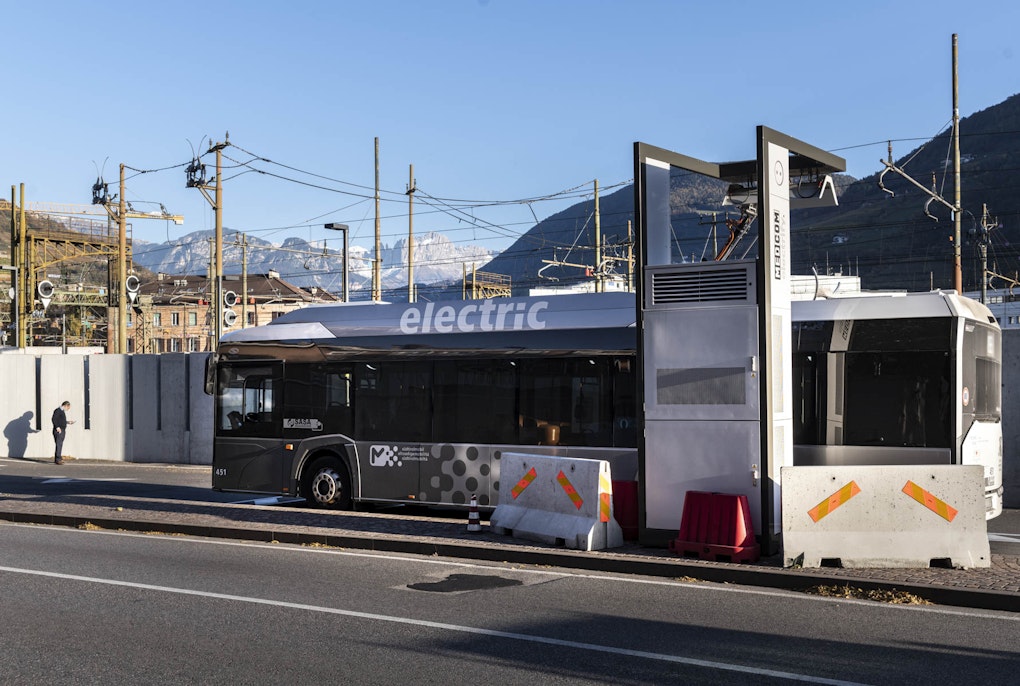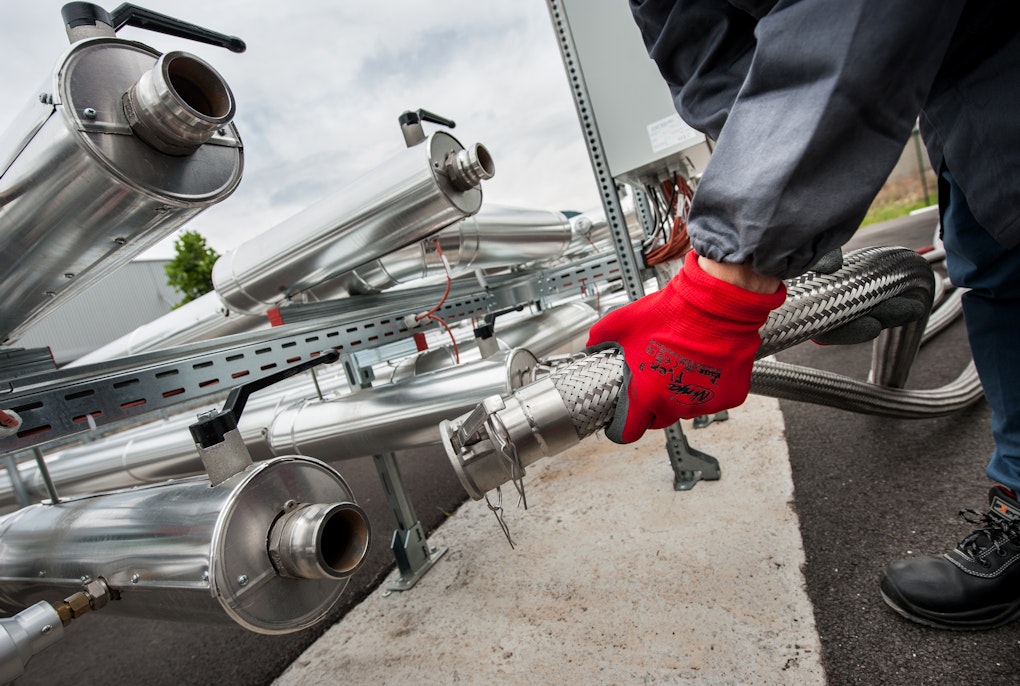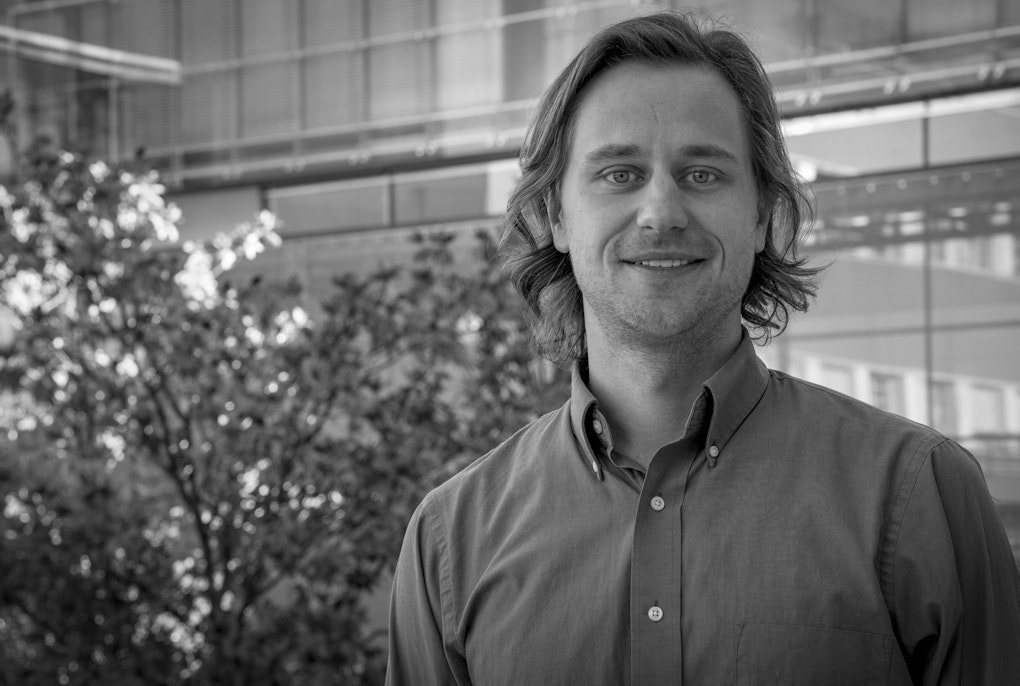magazine_ Interview
Raising the I.Q of Cities
Peter Droege the internationally renowned urban sustainability expert shares his insights on the evolution of smart cities in the wake of the Covid-19 pandemic.
The freezing of people’s mobility accellerated the digital shift, says Peter Droege.
Credit: Eurac Research
The world has been in the midst of an urbanising sea of change for the last generation however, in the light of our recent pandemic, we have grown weary of proximity to others and begun to envisage an escape from cityscapes. With over 40 years of experience in the intelligent environments and smart cities sector, there are few more qualified than Professor Peter Droege to examine the role of the information revolution on cities and the sustainable approaches needed to stabilise the global climate.
In light of your first publications, has the trajectory towards Smart been as you expected?
Peter Droege: No, it’s been much slower, very surprisingly because the technology has been there for decades. The institutions, the way people behave in society, the cultural, patterns and habits, are more powerful than any technological innovations could possibly be in transforming them. There’s nothing new about technology, it’s just about having the right scenario for people to realise they can actually use it. We definitely need more technology awareness in society and schools: there is still also surprisingly little recognition of the fact that the global bloating of cities and urbanised lifestyles has been both the direct and indirect result of the explosion in fossil fuel use, especially from the mid-20th century onwards.
Are we embracing technology more now because of the virus?
Peter Droege: It's certainly boosted the popularity of digital media, in business, politics, the workplace and society at large. Take for instance the American elections, both the 2020 Republican and Democratic conventions or any kind of political conference, even the European parliamentary elections that take place in different countries. People are used to seeing these events in physical spaces, meeting halls and parliamentary buildings, although it has already been possible, for at least 20 years, to do all of that through digital communication systems and media. But, it was not until this year that the both Democrats and Republicans actually embraced it, not just as an emergency response to Covid-19, but by realising that you can explode these events onto all media platforms at the same time and speak to individual people directly, narrow- and micro-casting messages and embrace a kind of hyper entertainment mode in doing so, Academy Award style, blasting people's homes and devices, by flooding social media apps from Twitter to Facebook. It should actually surprise us that this hadn't already happened five or ten years ago. But it’s all about the sheer momentum of established cultural patterns – ingrained institutional inertia – behaviour patterns that society won't give up until it is forced to. The freezing of people’s mobility meant that this digital shift simply had to occur, and it was embraced with a vengeance. I don't think these conventions will ever go back to their old conventions – no pun intended.
In my view, the smartest city is one that undoes all the harm humanity has been wreaking on our planet.
Are we relinquishing any other conventions?
Peter Droege: Conference centers and convention halls are all outdated. Will they be torn down? Converted into entertainment centers, hyper-shopping malls or places where you can look at boats or buildings in 3d? Will they become physical recreation palaces, indoor arenas, public pools and water worlds? What about universities? I don't think universities, big ones like the University of Rome, smaller ones like Harvard University and even our own boutique university in Liechtenstein will operate again as they used to. The buildings are fundamentally outdated: for months already, students have been conducting their work and classes online. To go back will be very strange, to sit there in a 19th century style classroom to face a lectern and a blackboard. It’s highly peculiar because there's been kind of a liberation from these formalities. In 1986, I, developed a project in Japan called Campus City, where I won the Grand Prize of a competition sponsored by, among others, the national broadcaster NHK, the big daily paper Mainichi Shimbun, electronics giant NEC, general building contractor Taisei Corporation, Tokyo Institute of Technology, the Japan Association of Planning Administration and Kawasaki City. This was about the city at large becoming, being the actual university, a place of ubiquitous teaching and learning made possible by communication media and advanced IT, purposefully applied to achieve environmental health and sustainable development. So everywhere in the city, you could learn, gain insights, teach through the information technology media. And now it's happening - 35 years later, it just took a virus to make it materialise.
The city itself as hub for learning, very cool. What else makes a real smart city?
Peter Droege: Being able to survive! In my view, the smartest city is one that undoes all the harm humanity has been wreaking on our planet. Promoting biodiversity, extracting greenhouse gases from the atmosphere, running on renewable energy, guaranteeing universal access to opportunity and income, free lifetime education and excellent healthcare, a one-planet lifestyle, responsible finance and global sustainability agendas. This is what all cities should be able to provide, and strive for. Even today. At a basic level, actually, it's the way the city fits to people's expectations and comforts them, gives them a sense of safety, enables their access to resources and empowers them by allowing them to form communities and be able to read cultural content or cultural meaning in the spaces that support them. It's the parks and the trees that keep a city livable. It’s the integration of circular water systems, recycling and the use of sustainable material. These aspects are expressions of good city leadership and well managed economies that make cities great. The city is above all, a social environment of very different kinds of communities. What makes a city ‘livable’ for one group may not be so palatable to another. It's a question of social integration, diversity and the ability to transcend class structures that makes cities great. In fact, the Middle Ages attracted people that felt oppressed to cities because it made them feel secure. In medieval Europe, city air was meant to liberate from the oppression of feudalism. We need to think of the city, not as a physical or an economic construct but as a social and community-based set of structures which support each other.
The virus is in reality a distraction from the big problem, which is the fossil fuel virus.
From the Middle Ages to the present day, have the fundamentals of urbanism changed much?
Peter Droege: Everything changes over time. That's the nature of history. It changes with the nature of cities, the evolution of technology and media, the nature of beliefs and what we think about, how we construct our reality and ethics, what financial frameworks we subject ourselves to and how they are maintained and justified, and, in the end, where resources come from on a very finite planet, a planet exploited by economies in overshoot. Theories about urban management and governance also change - we have more fluid, more networked and horizontal models today than we had 50 or a 100 years ago when management was more top down. Now it's a little more bottom up, it's more dynamic, responsive and it's perhaps less intrusive than it was. If you look at the British and German town planning systems of the early 20th century, they were very rigid. Many countries still suffer from that rigidity, Australia and other Commonwealth states and India suffer from the bureaucratic administration bug - but the need to implement more strategic and outcome oriented planning and distributed administration and governance models held to transparency and accountability, can eventually enable communities, neighbourhoods and districts to be empowered and to even self-govern as cooperatives.
What gives this evolution impetus: does it come from corporations, the public or governments?
Peter Droege: Well, here I would like to be critical. The common belief is that it's mostly technology, as a tool system - a mechanised strategy for pursuing Darwin’s misguided doctrine of the survival of the fittest. This is too banal to be a successful strategy much longer, if it ever was. It’s destructive. Nature does not work that way: it thrives on cooperation, diversity, complexity, evolution in harmony. We need different ways of sharing and exchanging information. These mediated transformations that have always been part of human evolution, also transform the way information is exchanged and managed. And so right from the beginning of IT or Smart City development in the late 1970s/early 1980s, there was a strong belief that there was direct democracy and liberation to be had, and, while there were privacy issues and issues of social control and fears of Big Brother emerging, the idea that really drives the smart city notion, then and today, is the ability to have open governance and citizen participation, direct input and hindsight into the way city works through the information technologies available, to have an empowered democracy. Freedom from constraints, ironically through systems or defined constraints.
The burden is not the lack of energy, it’s that there could be too much energy!
Peter Droege and Wolfram Sparber, Director of the Institute for Renewable Energy, at the Klimahouse Fair 2019.
Some say smart cities will destroy democracy…
Peter Droege: The rise of smart cities as bundles of commercial command, control and data extraction services, driven by big integrated services corporations like Google, or hardware companies like Cisco, software companies like SAP or Microsoft, suppliers of Big Data fisting systems, large smart energy service companies - and almost all of them have role in smart city promotion, they see it as a necessary way of applying and peddling their wares. As such, some Smart Cities today, driven by this kind of force, result in a sad and sterile emptiness, devoid of meaning, purpose, social mission and serendipity. We see information industries or providers of software technologies, controlling through supervision and crowd management or by using facial recognition technologies to subvert the social objective. In London, the ubiquitous nature of video cameras, being able to even read people's faces with masks, this kind of social control and invasion of privacy is very dangerous. Other countries have prevented that, in Germany they can't have any cameras in the public domain. Even if you want to put a camera on your own house, it cannot face the public street. It has to face inward because otherwise it's an invasion of privacy. A big problem is that once you install public cameras, you can't get rid of them. And if you can't get rid of them, that means they're going to be subject to software innovations, which then create a kind of an automated police state. For instance, there's a behavioural recognition software that can recognise whether someone has been sitting on a public bench too long. Whether they’ve been sitting at an angle, which suggests they were asleep which then sends a signal to an public security controller, very much like a drone operator who then has to decide where they should send the police or private security force to your bench.
SCARY!
Peter Droege: Technology that's driven by security concerns and big money interests make a living in monitoring people. It's a huge industry, big business. If you have a smartphone or work in the public domain, dozens, maybe hundreds of tracking companies know where you are and will direct you to areas of the city or a shop or an aisle in a supermarket to market a particular product and suggest things to buy, because they can tell you've been looking at something for some time. You must deliberately turn off all the possibilities in which this kind of tracking takes place, which is so precise that it can pinpoint, almost to the centimetre, where you are. The individual has to be aware of that and make their own conclusion to say “I don't want that”. Other people say, the tech is fantastic, they want the better deal… people are very naive about this, but, it’s up to the individual now. There are data provisions, data privacy and personal privacy and because it's supposedly anonymised, personal liberties are actually increasingly fair game. Your data is being mined and harvested all the time, and the longer you are online and on an app the more information about yourself you feed into that system. There is a need to be more aware, but you know that in the earlier days of this transformation, particularly in the late 1980s and early 1990s, there was a great deal of concern about the privacy issues. I remember the big outcry when it was possible to read your phone number on somebody else's phone - the caller display. People at the time thought it was an outrageous invasion of privacy. How could it ever be allowed? But now people think the exact opposite. If you don't show your number, you're trying to hide something. So, you see how people’s notions evolve. Privacy has evaporated as an issue, and an age of digital exhibitionism and voyeurism has set in - social media.
Some Smart Cities, driven by Big Tech, result in a sad and sterile emptiness, devoid of meaning, purpose, social mission and serendipity.
Following the current pandemic, do you think there is trend to leave cities behind?
Peter Droege: The population division of UNDESA reported that in the middle of 2009 the urban population began to exceed the rural one: the majority of the global population now lives in urban areas or areas with some form of local government. If the trend continues it may be 70% by 2050. In many countries like Germany or Australia, it's already 85%. This gave rise, in some parts of the world, to urban lifestyle mania. In Covid times of limited mobility, people like to be able to walk to the shops and order things that can be delivered. They have a kind of a heaven in urban centres: so-called ten-minute cities with everything within walking distance. But with digital media you can work almost everywhere, so the opposite is of course taking place at the same time, the used car market and the suburban home market are skyrocketing. People want to get away and don't want to have to take the subway. These countervailing trends are occurring at the same time, some people rejuvenate and rejoice in urban village life, liberating streets for bicycles - while others do the opposite. They flee the city in their SUVs. It's interestingly confusing right now. However, I don't think it will be a lasting effect, once there's a vaccine, once people have gotten over the implications of the virus, they’ll realise this was just a short-term distraction. There have always been viruses, pandemics and epidemics and there always will be. It's been part of human history, look at Rome and Egypt. Pestilence has been always part of urban reality. It's nothing new. We have a particularly mild virus here and people don't realise how mild it is, compared to some of the really frightening ones which sprung up during the last 2000 years; the various plagues to the so-called Spanish flu.
Can we say the virus has magnified the faults our societies are facing?
Peter Droege: The virus is in reality a distraction from the big problem, which is the fossil fuel virus. We have become distracted from and even immune to the climate horrors escalating everywhere. The urgent need is to focus on renewable energy and to transform the energy infrastructure of cities. And to make sure that the not just the air is clean, but also the sources of the energy. It's already so late that it's hard to do anything about the destabilisation of the climate. Even if we stop with fossil fuels today, there will be massive threats to our lifestyles and our lives. The actions being taken today are woefully inadequate.
Can renewables completely cover current energy demands?
Peter Droege: Just think of a 100% renewable building and then add 20, 30, 50, 80, a 100, 10,000 renewable buildings - you have a renewable city. Of course, you can also supplement that with external renewables, outside the city, wind and solar farms. Factor in the roofs and the façades too. There's more than enough natural and available energy in a city to power it. A renewable city could even supply the periphery of a city, too. The burden is not the lack of energy, it’s that there could be too much energy! Look at global heating: a problem of excess energy in the oceans and the atmosphere created largely by fossil combustion gases, now destabilising the planet. The big question is how to get it done though and at the same time, draw down or lower the greenhouse gas concentrations in the atmosphere. It's a political, some say economic, but it's really mostly a political challenge, to get the governments to focus on how to get rid of the enormous subsidies for fossil and nuclear energy. How to build incentives to transform buildings. Every building can sustain its own energy system. It's possible - there's no rocket science there. We need an external push to accelerate this movement, or we're drifting off the edge, we're already close to losing the planet. A city that combats this horrific prospect: now that’s what I call a smart city.
Peter Droege
Peter Droege is one of the world’s leading minds in advanced urban policy, sustainable urban management, transport policy and strategy, urban design, city and regional planning and renewable infrastructure development. The award-winning author and editor of seminal books on city futures, resilience, regenerative design, energy and climate, directs the Liechtenstein Institute for Strategic Development (eurisd.org) and the International Advisory Service on sustainable cities and regions. He holds a Conjoint Professorship at the University of Newcastle’s School of Architecture and Built Environment and has developed a Chair for Sustainable Spatial Development at the University of Liechtenstein. Peter Droege’s academic career stretches from the School of Architecture and Planning at the Massachusetts Institute of Technology (MIT) and his position at the University of Tokyo as Urban Development Engineering Endowed Chair to his position as Lend Lease Chair and Professor of Urban Design at the University of Sydney, to the University of Liechtenstein. Among his numerous papers, journals and books, Intelligent Environments, the pioneering 1997 handbook on smart cities is currently being produced in a second edition, connecting crisis cognition, IT innovation, regenerative practice, radical climate policy, speeds and tangible agendas over a 24-year time span.
